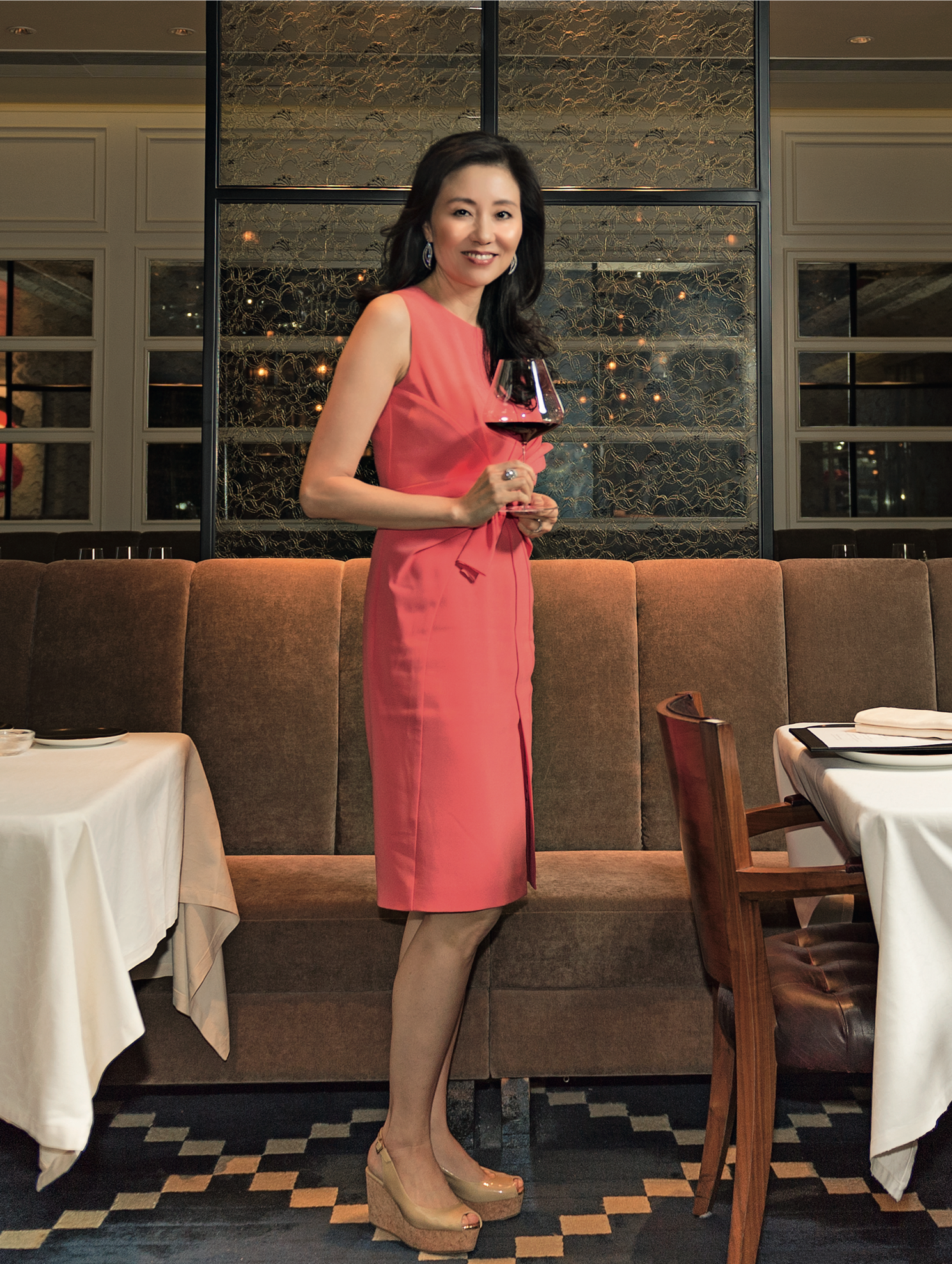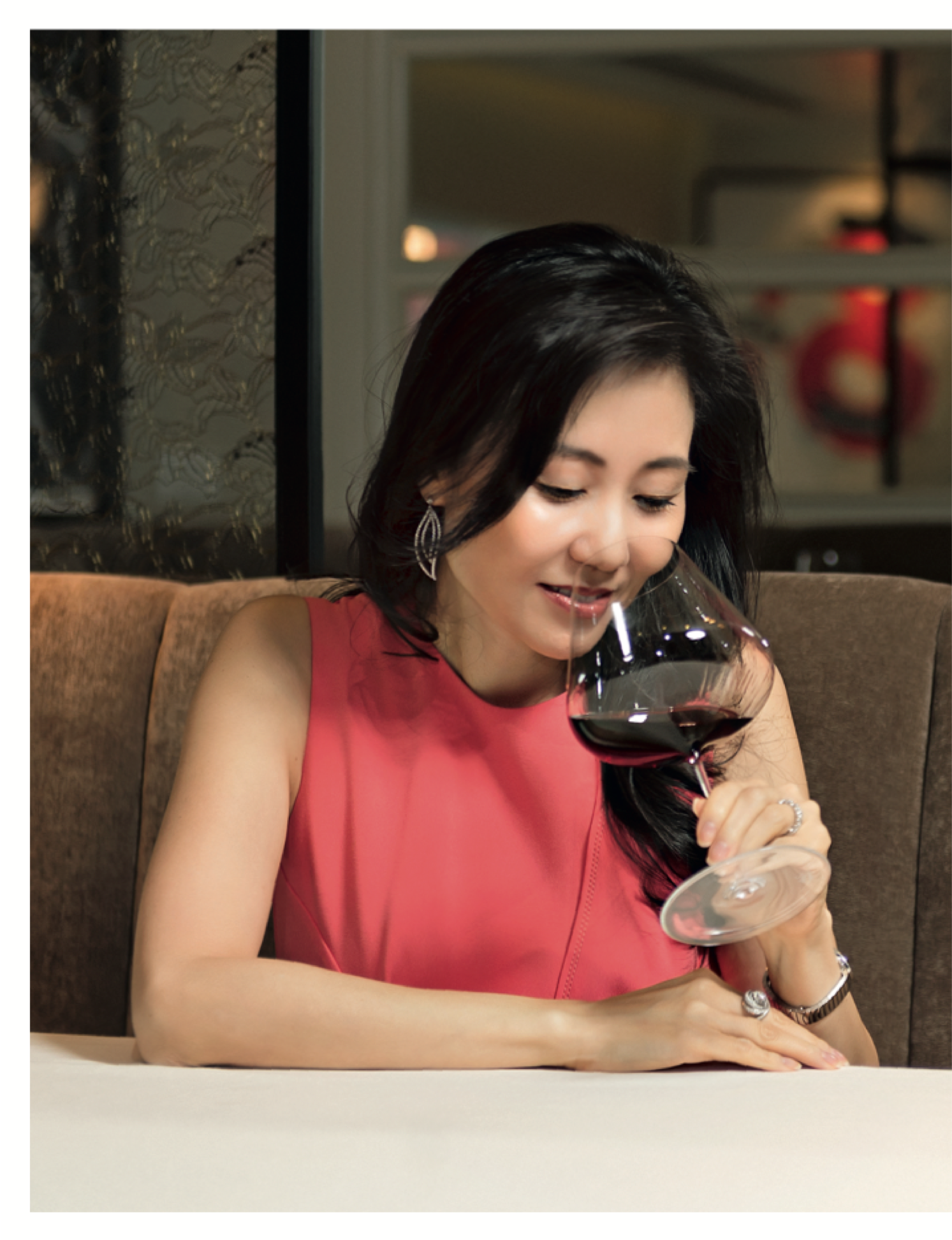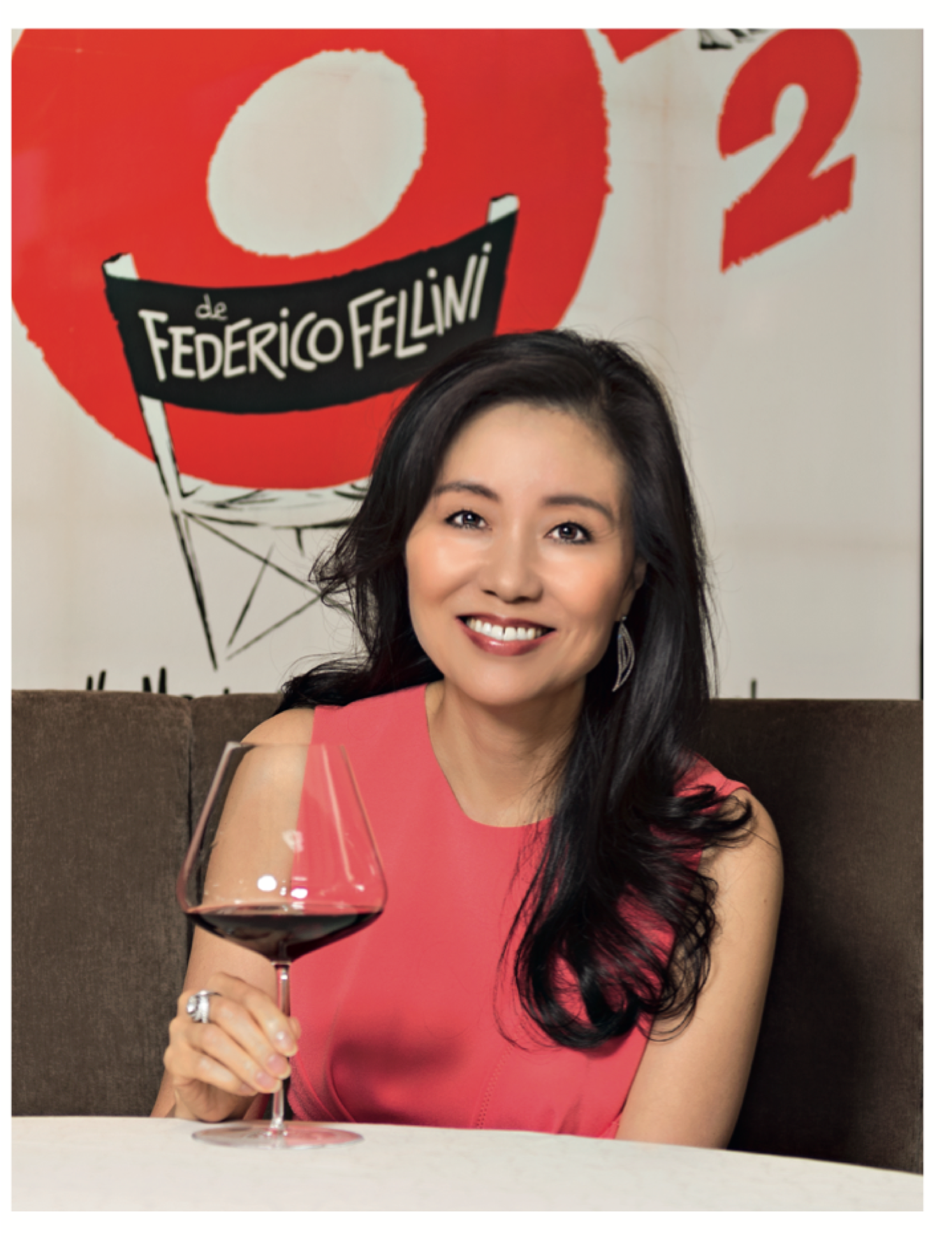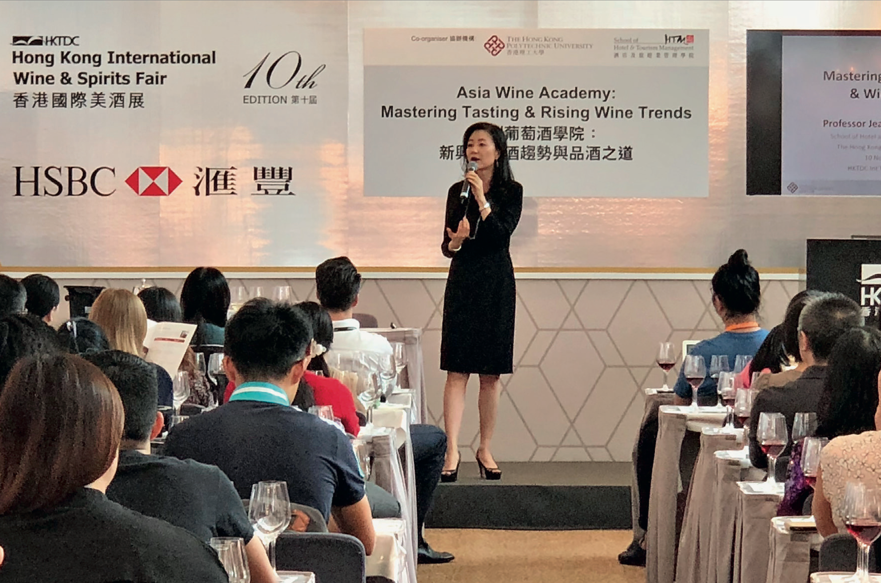by Philippe Dova, photo by Enrico Gili
“Over a glass of wine, Jeannie Cho Lee, Master of Wine, shares her love and passion for wine and tells us what has driven her for over 25 years.”

Nothing in Korean-born Jeannie Cho Lee’s background pre-destined her to become the highly respected and extremely popular wine critic she is today. As a student in the UK in the 90s, she was already passionate about food. Then she discovered wine and the extraordinary things that can happen when the right wine is paired with the right food. She began taking notes in a little book. These became the “wine diaries” which were later published by specialist magazines.
Now based in Hong Kong, Jeannie Cho Lee is the first Asian Master of Wine, having earned the qualification in 2008. The notes from her nearly 100 handwritten wine diaries on almost 20,000 wines can be viewed on her website.
As a journalist, writer, critic, consultant, presenter of the TVB Pearl show In Vino Veritas and professor at the Hong Kong Polytechnic University’s School of Hotel and Tourism Management, Jeannie Cho Lee has one purpose: to share her love of wine and make wine accessible to as many people as possible. She has been pursuing this goal for the past 25 years with elegance, style, meticulousness and a great deal of humility.
Question: Do you think your popularity has anything to do with Asia’s growing interest in wine?
Answer: So many things in life are about timing. When I became interested in wine, there was not much interest in Hong Kong. When I passed the Master of Wine in 2008 it was the exact same year that Hong Kong decided to eliminate wine duty. Things happened very quickly after that, and now people think of wine as part of a lifestyle, a beverage that you can find in Chinese restaurants, not just Italian or French. Hong Kong has become a fine wine hub, a centre of wine learning and knowledge. I do believe that I’ve been very lucky and it’s about being at the right place at the right time.
Q.: As a woman, was it more difficult to gain recognition in the male-dominated world of wine?
A.: I don’t want to say that being a woman and being Asian makes me different from all the other Masters of Wine, who also have the knowledge to get the qualification.
The main problem is the fact that I look different: I don’t fit the image of someone who is a Master of Wine. Plus, I didn’t grow up in a wine region, it’s not part of my history, my culture – it’s very new. When I try to give an example of what it’s like, I always tell people to imagine that a tall, blond, blue eyed person comes to Hong Kong and says ‘I’m a Master of Cantonese food’. What would the local Chinese think? They’d say ‘Really? You come from a Scandinavian country and you arrive in Hong Kong and tell us you’re a Master of Cantonese cuisine?’ They can’t imagine someone who looks like that, who’s not been exposed to that culture and background, to have the same amount of knowledge. I understand completely why there’d be doubt.


Q. What is your worst tasting memory?
A. The last one was probably with a bottle of Domaine de La Romanée Conti-La Tâche 1990, one of my favourite wines. It was a very special occasion for a friend of mine and he had been saving this bottle. We opened it and were all very excited and it was just oxidized. It was a very sad moment. It’s not common to have Domaine de la Romanée Conti oxidized or bad. Most of my experiences have been very positive. So that was disappointing.
Q. And your best?
A. The first time I tasted a wine and thought ‘wow, this is wine?’ was in 1989 when I tasted a Château Talbot 1982. I was only 17 years old, I was very young still, but I thought ‘the wine is so complex’. I didn’t realize that a wine can make you think, and I almost wanted to stop eating!
Q. The Michelin Guide has recently acquired Parker. What do you think about that?
A. It’s a fabulous idea, a great marriage. I’ve always encouraged food and wine together.
I came into wine because of food. I think both of them will be more successful together.
Q. What do you think about the organic wine trend?
A. Like in any field, I think it’s wrong to follow something just because it’s trendy. You have to discover why. What makes organic wine? Is it fully certified organic, or is it just organic philosophy? The definition of organic can be very strict -- that you have to be certified by a European or North American institute, to have an inspection every three years to say that you’ve not been using non-organic pesticides or fertilizers or chemicals in your vineyard. So that’s one extreme. But on the other hand, you can say you follow the organic philosophy because you try to use organic products, so there’s a wide range. And also I think the perception of organic wines could be that organic food seems healthier, less commercial and tastier. Unfortunately, wine is not like that. Just because it’s organic, the wine isn’t going to taste better.
Q. What was your most beautiful encounter with a winemaker?
A. My first meeting with Madame Lalou Bize-Leroy in Burgundy ten years ago. I’d tasted her wine, I knew her personality through the wine, but I didn’t know her, and when I met her everything made perfect sense because she embodies the exact principle of being passionate. It’s like when you see a work of art without knowing the artist, but you understand the passion and the colour and the composition, and the intensity, the concentration.
The way she’s interacting in the vineyard with the vines is exactly like a mother with her children. That is maybe slightly romantic but a very high quality wine comes from the land, the grapes, but also from the soul of the winemaker. When they come together, you have a great wine.
Q. Do you have the dream of making your own wine?
A. Never! If I were going to make quality wine I really would have to be living in my vineyard, and I’d have to give up everything about my life as I know it. I wouldn’t want that lifestyle.
Q. And what about opening a wine bistro?
A. I’d love that for fun. If I was living anywhere else besides Hong Kong, where the rent isn’t always so high, I might think about it for fun.
Q. Your next projects?
A. I have a new book coming out next year. I want to continue writing and teaching. I want to continue to develop other types of communication and see how I can best communicate what I enjoy, but also what I’m good at and what is useful to the industry.
Q. Have you already found the name of your book?
A. I am still thinking about it. My publisher has asked to not say anything specific.









